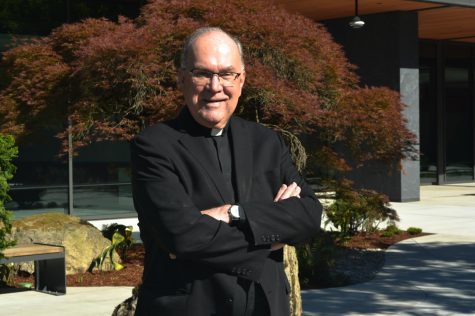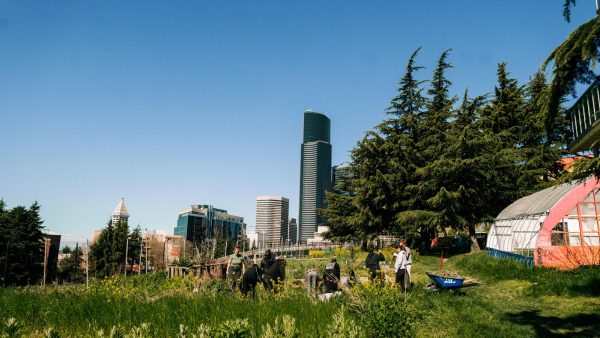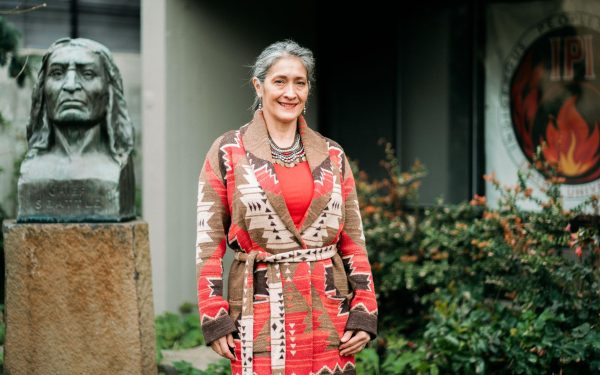Seattle U Student Organizations Persist in a Virtual Environment

Nearly one year after Seattle University transitioned to virtual learning, leaders of student-led culture clubs continue to persevere in an ongoing struggle to retain member engagement and preserve their traditions.
Taylon Manuel, President of Hui O Nani Hawai‘i and third-year psychology major, has endured the difficult process of transitioning her club to a remote setting.
“The main challenge is keeping members involved and engaged,” Manuel said. “You notice that the numbers are going down with member engagement, and then, you’re trying to think of different ways, creative ways to get people involved.”
For Hui O Nani Hawai‘i, a club well-known for interactive events such as their summer beach potlucks, Canada ski trips and annual Lūʻau showcase, the adjustment was drastic. They now settle for a pre-recorded Lūʻau show, virtual dinner gatherings and game nights on Zoom.
“It is stressful and a little difficult. Sometimes I just run out of ideas and I can’t think of any more virtual things that I can do,” Manuel said. “It’s not like you can ask previous presidents for help, because nobody has gone through this before.”
Hui O Nani Hawai‘i is not the only organization facing this problem. For many clubs, the online format has broken their traditions of bringing people together through in-person meetings and social events.
Dustin Pham, President of the Vietnamese Student Association (VSA) and fourth-year computer engineering major, agreed that the transition to a virtual environment has been a grueling task.
“I think the important thing is not to have the same expectations we usually would during a normal school year,” Pham said.
Before the pandemic, the VSA held large events, such as their annual Xuân showcase or their Pacific Northwest Turkey Bowl. Now, they have had to adjust to an online model. This past year, they coordinated a virtual video game tournament, several online fundraising projects and a livestream script-reading of their Xuân show.
In response to immense changes over the past year, club leaders have realized the importance of recognizing and accepting the inevitable challenges of socializing on Zoom.
“The platform is not the best for one-on-one interactions,” Pham said. “It’s definitely hard to get that deeper connection with the new students.”
Mark Inouye, President of the Japanese Student Association (JSA) and third-year accounting major, echoed a similar sentiment.
“I think people are a lot more open in-person with sharing their ideas,” Inouye said. “It’s not so much that they’re shy people, but just because of the Zoom format, it’s like you’re working harder to make them feel comfortable.”
In order to compensate for the lack of traditional social interaction, club leaders have altered their focus towards new strategies for encouraging member participation.
“We’re trying to be more interactive on social media,” Pham said. “We’ve been having a lot more engagement in that kind of way.”
The JSA has completely shifted from holding in-person cultural events, such as the Harumatsuri (Spring Festival), to now using alternative methods to boost engagement. In recent months, they have ventured into creative forms of media engagement such as a virtual Obon memoir series and a cookbook recipe project.
Throughout the transitioning process of converting events and meetings online, club leaders have remained resourceful and steadfast with a positive outlook for the future.
Inouye and Manuel, both third-year students, shared a deep sense of responsibility and hope in preserving the customs of their clubs. As such, they are carefully safeguarding fond memories of traditional in-person events.
“Hopefully in the next year they can come back,” Inouye said. “Specifically for culture shows, we were the last year to be able to view them in person, which is really difficult going forward for future generations if they want to recreate it.”
Manuel noted her hope for the future of Hui O Nani Hawai‘i.
“It’s just going to be my class that has to make sure that Hawai‘i club goes back to how it was our freshman year,” Manuel said. “We all enjoyed it so much. It’s going to be tough because…you have to work from the bottom just to build everything back up to how it was.”
Pham, a soon-to-be graduate of Seattle U, remains optimistic for the restoration process of bringing cultural club events back to campus.
“I think our alumni connections are really good, so as long as they reach out to us in the end, we can definitely give them ideas,” Pham said, inviting the next generation of club leaders to lean on alumni for support.
Although spring quarter will remain remote, the potential for Seattle U to reopen for the 2021-2022 school year gives students hope as they look forward to rebuilding their culture clubs and making up for lost time.










